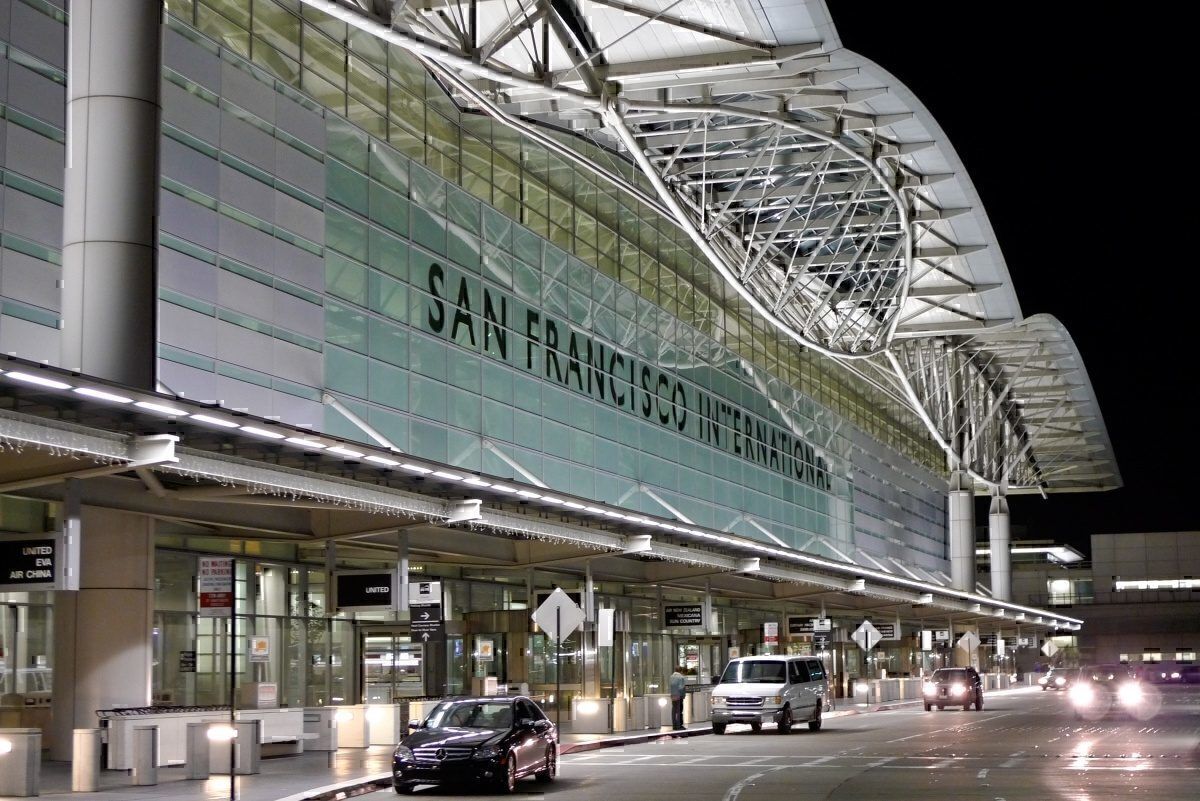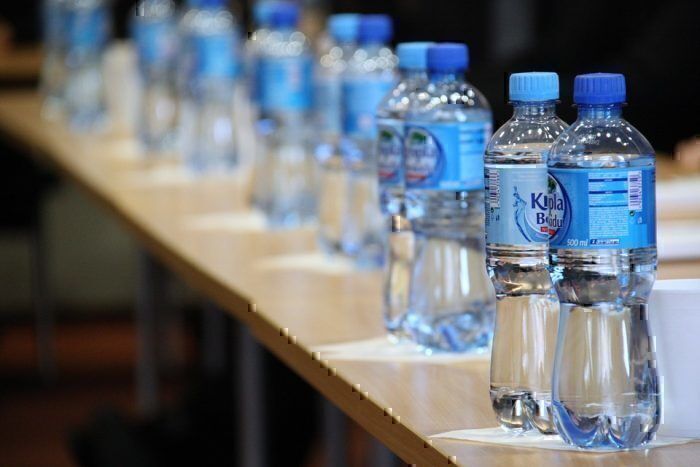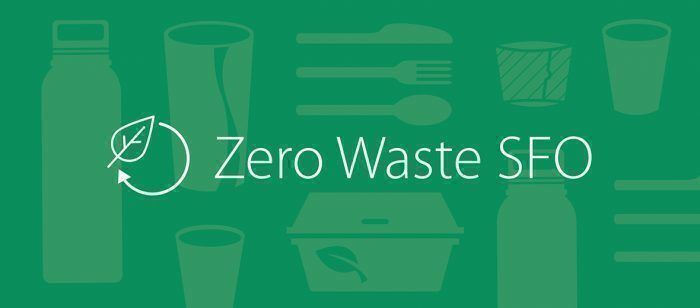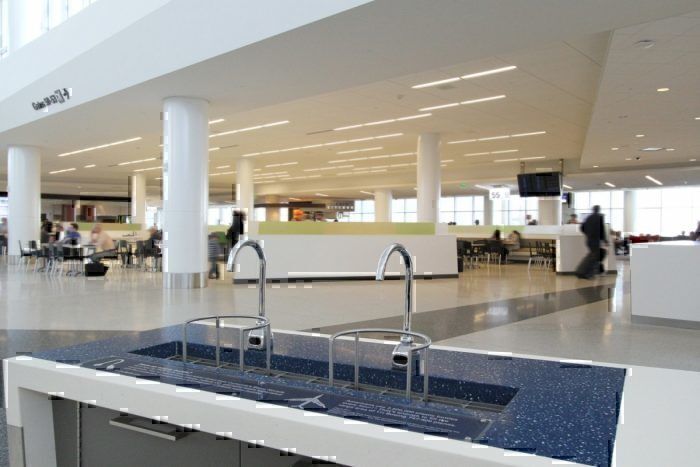San Francisco International Airport (SFO) has banned the sale of plastic water bottles starting August 20th 2019. Will other airports follow their lead?
Banning the sale of bottled water in all the airport's cafes, restaurants, shops, and vending machines are all part of a bigger plan to become a zero “waste-to-landfill” facility by 2021.
San Francisco International Airport (SFO) clamped down on the use of plastic straws in compliance with a city ordinance banning their use in July. Now, it will now only allow water to be sold in glass, recycled aluminum, or certified compostable containers.
San Francisco Airport wants to curtail our bottled water culture
According to the airport, each passenger creates half a pound of garbage and to cut down on this waste the airport is limiting single-use food accessories.
These include napkins, plastic knives and forks, chopsticks and coffee cups. Any that are used need to be “environmentally friendly” or “bio-based “and approved by the Biodegradable Plastics Institute (BPI).
Before announcing the ban, San Francisco International Airport (SFO) installed close to 100 water bottle filling stations. The airport also told restaurants to limit condiment packets by only giving them out when requested by the customer.
Prior to this, fast-food establishments would just add condiment packets to your food order, whether you wanted them or not.
“We waited until now because a few years back there was really no market in place to provide an alternative to water in a plastic bottle,” SFO’s public information officer, Doug Yakel, said in an interview picked up by the Guardian. He added that,
“We’re hoping that as the demand from retailers increases, there’s an increasing supply of water that’s bottled in something recyclable. We’re hoping to drive that industry as well.”
Shops at the airport that used to sell plastic bottled water have now switched to water packaged in either glass bottles or biodegradable containers.
Before the ban on plastic water bottles, vendors at the airport used to sell around four million bottles of water a year.
When informed by the San Francisco Chronicle newspaper of the impending bottle ban Thursday, San Francisco native Tony Vargas, thought about it for a moment, then said,
“It’s great — kind of. I’d like to see them sell more compostables, reusable and even, you know, biodegradable bottles. I think bottled water is the most ridiculous thing. It’s a bunch of waste.”
Since 2011, passengers at San Francisco Airport have been able to fill up their own glass or aluminum bottles from free wall-mounted hydration stations that dispense free filtered drinking water.
San Francisco and northern California, in general, have always led the way when it comes to environmentally friendly programs. The banning of plastic water bottles proves this yet again.
Is it safe to drink San Francisco tap water?
The answer here is an easy yes! San Francisco has some of the best tasting water you will find anywhere in America.
The tap water in San Francisco comes from the Sierra Nevada snowmelt stored in the Hetch Hetchy reservoir situated on the Tuolumne River in Yosemite National Park.
Some other cities are not as good when it comes to tap water
In other cities, the water is not as good. In fact, you may want to think twice before drinking from the tap.
According to Business Insider, in 2017 the Pittsburgh Water and Sewer Authority issued a warning to residents to boil their tap water before drinking it. In Milwaukee, Wisconsin, residents were told to only drink filtered water after children tested positive for elevated levels of lead.
Newark, New Jersey’s water system has tested positive for lead levels above the EPA's safety threshold and tested positive for haloacetic acids (HAAs), which can potentially increase the risk of cancer.
While we are all aware of the scandal involving Flint, Michigan, did you know that in 2018, 57 out of 86 schools in Detroit tested positive for elevated levels of copper or lead?
Generally speaking, in all developed nations the water should be safe to drink. While I applaud San Francisco Airport for banning plastic water bottles, governments need to pass laws to ban the use of plastics.
How would you feel if your local airport banned the sale of plastic water bottles? Let us know in the comments section.




